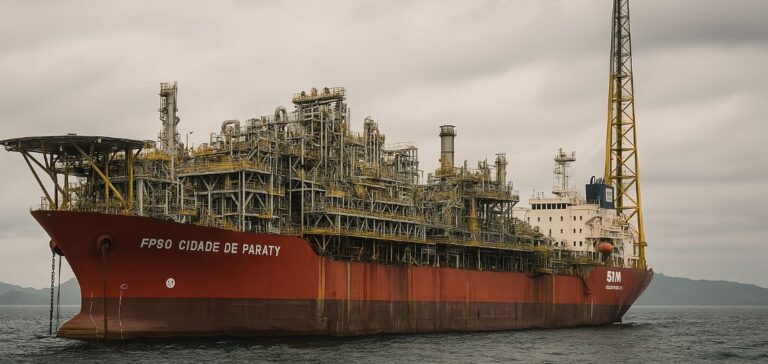SBM Offshore has concluded a non-recourse leaseback financing agreement worth $400 million for the floating production, storage and offloading unit (FPSO) Cidade de Paraty. The operation, announced from the Netherlands, will result in the transfer of ownership to four Chinese leasing companies by the end of April 2025, pending the fulfilment of certain closing conditions. The agreement has a tenor of eight years.
FPSO Cidade de Paraty is currently held by a special purpose entity owned 63.125% by affiliates of SBM Offshore and 36.875% by its partners. Under the terms of the agreement, this entity will transfer the asset to the new Chinese buyers while continuing to operate and maintain it for the remaining 8.5-year duration of the initial lease and operate contracts.
A strategic refinancing transaction
This marks the first leaseback financing structure entered into by SBM Offshore for one of its assets. The move is part of a broader strategy to diversify long-term financing models and optimise the management of its offshore infrastructure portfolio. Such structuring also enables the release of capital while retaining operational control over the asset in question.
Douglas Wood, Chief Financial Officer of SBM Offshore, emphasised the significance of the deal within the company’s global strategy: “We are very pleased to have concluded this refinancing of FPSO Cidade de Paraty. It represents a strategic milestone demonstrating our ability to deliver innovative long-term financing solutions.”
Chinese lessors central to the financing model
The involvement of four Chinese leasing firms highlights a growing trend of cross-border financial collaboration in the offshore sector. These partnerships provide operators with substantial liquidity while maintaining their contractual operational roles over the utilised assets.
The company has not disclosed the names of the Chinese entities involved, though these players are known for their regular participation in large-scale global projects. The choice of Asian partners aligns with a strategy of seeking alternative funding outside traditional Western banking channels.






















